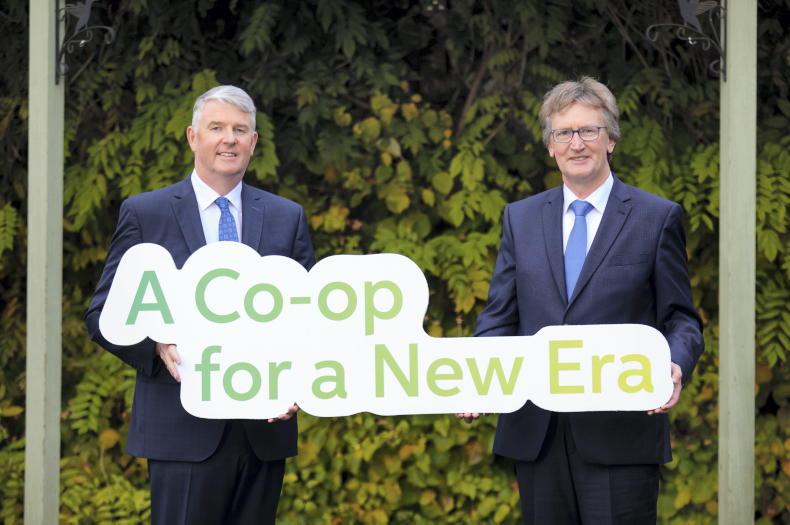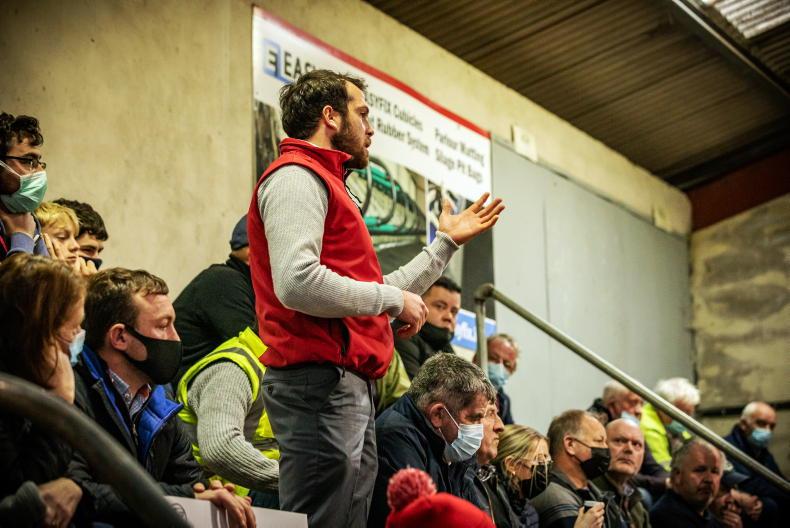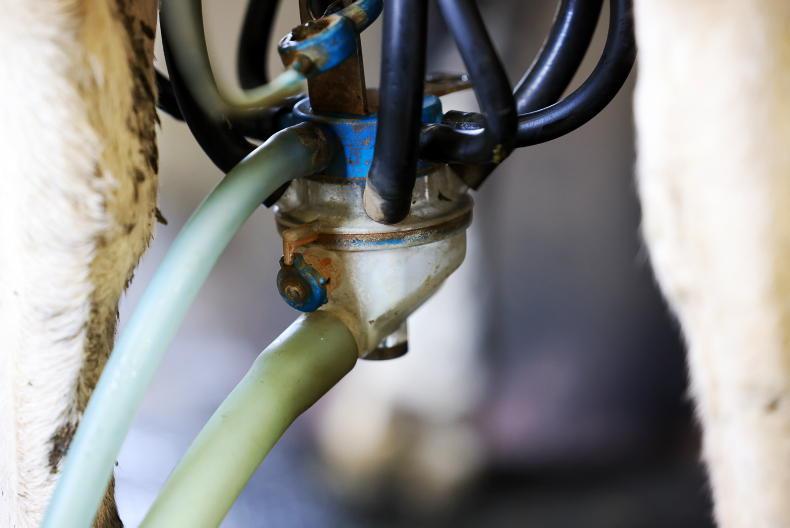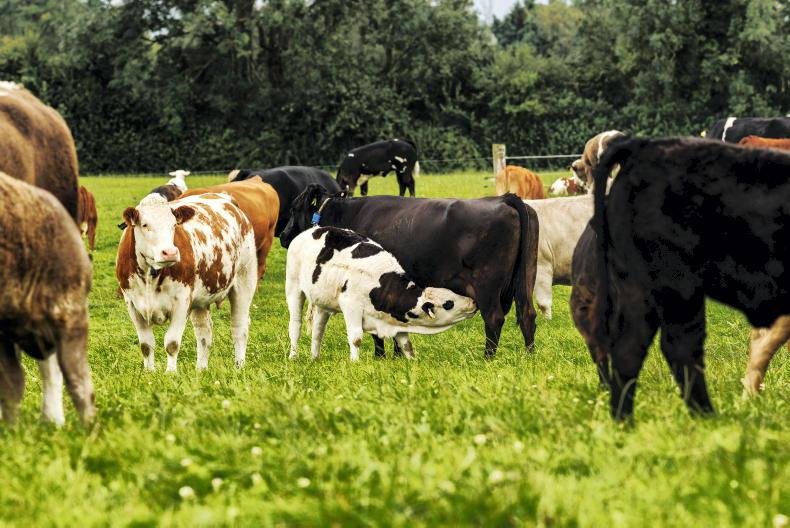As Declan O’Brien reports this week, An Taoiseach Micheál Martin’s warning that each sector will be responsible for the cost of failing to meet their emission reduction target presents a huge threat to farm incomes.
It signals that Government’s future commitment to co-financing farm schemes could be diverted to offsetting the cost of failing to meet emission reduction targets.
But the financial liability for failing to meet whatever emission reduction target is fixed for the sector next year cannot be left solely at the doorstep of farmers.
Policymakers, researchers and those in knowledge transfer will play a key role in ensuring the correct policy landscape is developed while new research technologies are identified and rolled out on to farms.
Each of these actors within the sector must also carry a share of the financial liability and be properly measured on their delivery.
Achieving emission reduction targets from food production is not the sole responsibility of farmers and therefore farmers must not be left to carry the financial liability from any shortfall.

\ Jim Cogan
One rule for farmers and another for factories
We see a ludicrous situation developing in relation to the allocation of the EU’s €1bn Brexit Adjustment Reserve (BAR) fund. This week, An Tánaiste Leo Varadkar and Minister for Agriculture Charlie McConalogue announced the allocation of €70m under the fund to meat and dairy processors – many of whom operate on a fixed margin basis and in the case of beef processors, without transparency around market returns.
According to the Government, the funding is to help the industry to develop and diversify by moving up the supply chain and gaining access to new markets while also helping them prepare for a low-carbon future.
Yet at the same time, farmers have been locked out of the fund on the basis that the impact of Brexit has yet to be felt on beef price. Surely farmers should be given the same opportunity to access BAR funding to diversify their business as the UK continues to internationalise its food import market and to assist them in preparing for a low-carbon future.
The rationale for providing €70m to the food processing sector reinforces the argument for a large proportion of the fund to be ring-fenced to help restructure the suckler sector.
Glanbia Co-op to take control of Glanbia Ireland

New Glanbia Co-op chief executive Jim Bergin with Glanbia Co-op chair John Murphy as the co-op announced it is proposing to acquire full ownership of Glanbia Ireland. \ Mary Browne
In this week's edition, Jack Kennedy details the announcement that, subject to shareholder approval, Glanbia Co-op is to take 100% control of Glanbia Ireland. Co-op chair John Murphy is clear on why board members are unanimously in favour of the deal. They view it as an opportunity to develop a leading food company with a focus to deliver strong returns back to farmers through leading prices. The abolition of the fixed PAT margin of 3.2% will be welcome and provide increased flexibility around milk pricing. The new structure will also allow farmers measure the performance of the board and senior management. There is likely to be debate around the valuation and the decision to sell the co-op’s shareholding within the plc to part-fund the acquisition.
Would farmers have instead contributed to a share drive in favour of protecting the plc shareholding and the dividend that is passed back to them through the co-op on the basis of trading activity?
As Declan O’Brien reports this week, An Taoiseach Micheál Martin’s warning that each sector will be responsible for the cost of failing to meet their emission reduction target presents a huge threat to farm incomes.
It signals that Government’s future commitment to co-financing farm schemes could be diverted to offsetting the cost of failing to meet emission reduction targets.
But the financial liability for failing to meet whatever emission reduction target is fixed for the sector next year cannot be left solely at the doorstep of farmers.
Policymakers, researchers and those in knowledge transfer will play a key role in ensuring the correct policy landscape is developed while new research technologies are identified and rolled out on to farms.
Each of these actors within the sector must also carry a share of the financial liability and be properly measured on their delivery.
Achieving emission reduction targets from food production is not the sole responsibility of farmers and therefore farmers must not be left to carry the financial liability from any shortfall.

\ Jim Cogan
One rule for farmers and another for factories
We see a ludicrous situation developing in relation to the allocation of the EU’s €1bn Brexit Adjustment Reserve (BAR) fund. This week, An Tánaiste Leo Varadkar and Minister for Agriculture Charlie McConalogue announced the allocation of €70m under the fund to meat and dairy processors – many of whom operate on a fixed margin basis and in the case of beef processors, without transparency around market returns.
According to the Government, the funding is to help the industry to develop and diversify by moving up the supply chain and gaining access to new markets while also helping them prepare for a low-carbon future.
Yet at the same time, farmers have been locked out of the fund on the basis that the impact of Brexit has yet to be felt on beef price. Surely farmers should be given the same opportunity to access BAR funding to diversify their business as the UK continues to internationalise its food import market and to assist them in preparing for a low-carbon future.
The rationale for providing €70m to the food processing sector reinforces the argument for a large proportion of the fund to be ring-fenced to help restructure the suckler sector.
Glanbia Co-op to take control of Glanbia Ireland

New Glanbia Co-op chief executive Jim Bergin with Glanbia Co-op chair John Murphy as the co-op announced it is proposing to acquire full ownership of Glanbia Ireland. \ Mary Browne
In this week's edition, Jack Kennedy details the announcement that, subject to shareholder approval, Glanbia Co-op is to take 100% control of Glanbia Ireland. Co-op chair John Murphy is clear on why board members are unanimously in favour of the deal. They view it as an opportunity to develop a leading food company with a focus to deliver strong returns back to farmers through leading prices. The abolition of the fixed PAT margin of 3.2% will be welcome and provide increased flexibility around milk pricing. The new structure will also allow farmers measure the performance of the board and senior management. There is likely to be debate around the valuation and the decision to sell the co-op’s shareholding within the plc to part-fund the acquisition.
Would farmers have instead contributed to a share drive in favour of protecting the plc shareholding and the dividend that is passed back to them through the co-op on the basis of trading activity?











SHARING OPTIONS